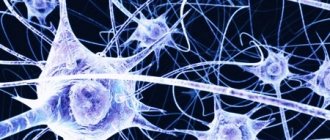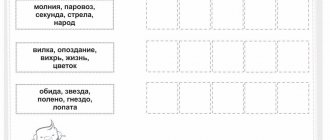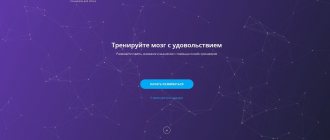What are memory and attention?
Everyone has a memory. Another thing is that not everyone knows how to use it correctly. We remember a lot of facts, images and figures. Without memory, life would look completely different.
For what reason, then, are we able to remember one person, but are unable to retain the name or date of birth of another for a long time? Do we easily remember the time of one meeting and are forced to write down the date of another?
Everything is simpler than it seems at first glance. If we remember something well, it means that effective memorization methods were used in this case. This happened either consciously or on an unconscious level. If you couldn’t remember, then the method turned out to be inappropriate.
Attention and memory are closely interrelated. Without the ability to concentrate attention on what must be memorized, as well as without an emotional reaction from studying a certain object, it is impossible to learn the material qualitatively. At its core, attentiveness, like interest, are the main indicators of good short-term memory performance.
Attention is the ability for selective perception. It regulates the fixation of an object in a person’s short-term memory. It is characterized by a short storage time of the received information in a small volume. The stronger and longer our concentration on an object, the better we can remember it.
Reasons for deterioration in concentration
A sharp decrease in attention is usually caused by disorders of brain function, known collectively as “asthenic syndrome”:
- Exhaustion of the nervous system: stress, overwork, lack of sleep, depression;
- Lack of vitamin B12: such a deficiency occurs in a variety of diseases - from anemia to alcoholism;
- Diseases of the endocrine system: thyroid gland, adrenal glands, reproductive organs;
- Postpartum period: immunity decreases, psycho-emotional instability appears;
- Death of brain cells: Alzheimer's disease, post-traumatic encephalopathy.
Such reasons are typical for advanced stages of the process. However, at first, a decrease in attention may be caused by a normal lack of oxygen or information overload. In the latter case, the brain may simply consider some data insignificant and simply not remember it.
Reasons for distraction
Before considering the issue of concentration, it is important to understand the causes of absent-mindedness.
According to Daniel Kahnman, there are 2 levels of thinking:
- The subconscious is a layer that functions without volitional effort. Reacts to a number of stimuli and is impulsive.
- Consciousness is a group of critical and rational thought processes. Performs a processing function for impulses emanating from the subconscious.
The conscious level is responsible for all processes where logic and the use of volitional efforts are necessary. When it comes to reflexes and reactive behavior, this is the work of the subconscious level.
The level of consciousness system is responsible for all thought processes. With its help we are able to concentrate on the task.
Our conscious thinking is subject to multiple influences from external interference, which makes the process of focusing much more difficult.
What irritants are there?
There are two types of irritants:
- Sensory - music, TV, people, and so on. You can easily get rid of them by physically eliminating them.
- Emotional - dialogue with oneself, a continuous stream of thoughts and the like. Caused by life problems, stress, health conditions.
To get rid of them, you can try to resort to volitional efforts, forget about pressing problems, focus on the task, but this depletes mental reserves.
There is another way to cope with emotional stimuli. This requires an understanding that the human mind tends to focus on negative experiences and events because they pose a threat and therefore require increased attention. Subconsciously, a person strives to erase them as quickly as possible.
It would be a mistake to try to remove the source of negative influence. In this case, you should have a good rest, recuperate, and make negative events your motivation to get out of the current situation as quickly as possible.
Poor concentration is a problem of our time
Brain exercises are extremely important and effective in improving memory and concentration, but usually the problem goes much deeper. We live in an era dominated by an intense, fast-paced lifestyle, especially in large cities. Constant stress, haste, lack of sleep, constant fatigue, poor nutrition and dehydration greatly affect mental abilities.
In addition, modern professions generally require so-called multitasking from employees, and this is precisely how a person improves his own ability to concentrate by checking new notifications on his smartphone every few moments. In fact, the human brain is not able to divide its resources into several different tasks, so it jumps from one issue to another, losing a lot of energy in the process.
The main problem when we get to work and have trouble concentrating is to keep external stimuli to a minimum. Therefore, scientists recommend turning off all notifications on your phone while performing your duties, turning off the TV or computer and going to a quiet, organized, well-lit and calm place.
Researchers have found that intellectual performance is greatly influenced by getting enough sleep during the day. It is believed that restful, uninterrupted sleep is a guaranteed improvement in memory and a reliable remedy for lack of concentration. An elementary solution to the problem of the inability to concentrate on one task for a long time is also daily physical activity. An ordinary walk at a brisk pace, an hour spent in the pool or a few minutes spent in a forest or park is quite enough. After training at home, don’t forget to take a breath of fresh air for at least half an hour - an oxygenated brain copes much better with solving everyday problems.
What helps and what hinders memorization?
Motivation is an important component in the process of memorizing any amount of information. To stay focused, always use self-motivation.
For example, the task is set to remember this material. This will bring great benefits in the future for your self-development, career, family. Speak out all the benefits of studying and applying this information. The more you feel the need for these actions, the more effective the memorization process will be.
You will find everything about motivation in the article: “What is positive motivation and how it will move mountains for you.”
External noise. Are you able to concentrate on work when there is turmoil all around? Most often it is an acquired skill, a habit.
If a person lives in a small apartment or student dormitory, his brain is forced to adapt to difficult conditions and do its work without paying attention to external stimuli.
Difficulties make us stronger. To increase your “impenetrability” threshold, I recommend artificially creating difficulties for yourself. For example, concentrate on reading while music is playing in your headphones, write a progress report while sitting in McDonald's, where people are walking around and making noise. This will tire you out faster, but the results will not be long in coming.
It's a pity there is no Mr. and Mrs. Impenetrable award. I’m sure you could claim first place after such training.
What is the brain from a biological point of view?
It is an unimaginably complex network of neural connections. Neurons are nerve cells and their number ranges from 90 to 200 billion. Each neuron is connected with 10 - 50 thousand other nerve cells, forming connections with them using synapses, the number and distribution of which are not constant. It was proven many years ago that the brain is not immutable; it is characterized by constant transformations and movements.
Photo: popmech.ru
Even in adults, new neurons are still formed and the synaptic network undergoes remodeling - a phenomenon that allows us to adapt to new conditions, cope with unusual situations, or acquire new skills and is called neuroplasticity. Without neuroplasticity, a person would react to everything the same way and make no progress.
Impulses travel through this complex network using neurotransmitters or electrical impulses. This process can be compared to a giant highway along which information reaches its destination. If the connections between neurons are strong (the highway is well built), then our memory is reliable. But before information enters circulation, it is subject to strict selection, otherwise our minds will be flooded with unnecessary data and overload will occur. It has been found that in one second, 100 billion bits of information reach a person, from which our brain extracts only 80 bits, which it considers the most important and worthy of remembering.
Although human memory can accommodate enormous amounts of data, it must squeeze into the brain through a narrow gate called working memory, which resides in the prefrontal cortex. Only when information is registered in this small “vestibule” can it move on to structures located in the hippocampus, where it is stored forever. The process is a bit like filling a bathtub with a small teaspoon - the smaller the working memory capacity, the less we remember, so it's worth developing it. When we practice new skills or practice remembering simple things, such as a shopping list or a friend's phone number, working memory improves.
The brain allows you to function effectively in the existing reality, so it is worth improving. Through the senses, he receives all the necessary information from the environment, and then selects it. He has the ability to pay attention, that is, to concentrate on those elements that are most important and interesting and discard those that create unnecessary “noise” and confusion.
Another important element of the brain is memory, with the help of which the old and the new are compared; this action gives the ability to reason and think logically. The brain obtains information, makes its choice, remembers important points, modifies outdated ones, and also allows you to draw logical conclusions. How we cope with any life situation depends on its performance, therefore, when memory weakens and a lack of concentration appears, a person begins to diligently search for the cause and solution to this pressing problem.
Ways to improve concentration
There is a lot of controversy regarding modern learning systems, since it is extremely difficult to objectively track improvements among users. There is an online service Vikium ru, which allows you to develop memory, attention and thinking in general in a convenient and simple way, in any place convenient for you.
In order to learn the technique of turning on and controlling voluntary attention, you should do special exercises. They help you gain concentration.
Of course, good concentration cannot be achieved instantly; you need to regularly work to improve its level.
Tips for improving concentration:
- Remain steadfast. Very often a person stops halfway and succumbs to the temptation to avoid working on himself. Try to overcome this desire, for example, by applying the rule of five. If you have to read a book, finish five more pages or use 5 more minutes of your time on this task. As a result, you may want to keep reading.
- Do only one thing at a time. All other issues can wait. Miller's Rule states that our available attention span is extremely limited.
- Always color the activity with emotions. When memorizing information, both attention and emotional return from the actions performed are important. Even to the point of inventing a game: every 5 pages of text is an opportunity to throw 5 paper balls into a waste basket.
Do our memory and brain affect how we work online and make money?
Undoubtedly, memory and brain influence our work and earnings via the Internet. How is this related? Let's look at a few examples from life.
Let's say you needed to make a Skype call today for work. The man forgot to write this case down in the plan and missed the call. As a result, the call did not take place, and both parties were dissatisfied with the state of affairs. Otherwise, the call would have been completed.
As for making money, here we can give an example of mistakes that arise due to lack of attention. Let's say the email distribution was set up incorrectly and therefore there is no income. The copywriter did not send the text to the customer and, accordingly, did not earn money.
The examples listed above help you understand that you need to train your brain to improve the quality of your life. This feature will help you avoid various problems.
Meditation and attention
There are many tutorials, online courses and programs for training memory, attention and concentration. In this article I will present some of them. You can learn more about the variety of exercises from the article on the blog TOP 10 exercises for developing human memory.”
The best way to concentrate is meditation. Ideally, such training should become a habit. Entry level – green dot exercise. It can be done at any time of the day and anywhere.
Description of the green dot technique:
- Relax your body. This is possible when you are sitting in front of the computer or during your lunch break.
- Imagine a green dot on the wall in front of you.
- Stare at an imaginary point for 3 minutes. Gradually increase the time, expanding your “comfortable” zone.
- Pay attention to your periphery and what is to your side. Keep everything around you in your area of attention. At the same time, do not move your eyes from the imaginary “green dot”.
This is a simple but extremely effective way to quickly learn to concentrate. The result is improved memory.
In general, meditation is a very powerful practice; if you adopt it, the effectiveness of any person will increase significantly. You can read more about meditation in the article: What is meditation and what will it give to the common man.”
Brain trainer free webinar for those who want to invigorate their brain
For those who want to give their brain a boost, you can sign up for a free webinar from Wikium called “The Brain's Super Power You're Not Using.” This webinar will help you improve relationships with loved ones, you will improve your attentiveness and memory, and you will be able to start earning more. During the webinar, you will learn about instructions and exercises that will help you improve your life.
To register for the webinar, go here and click “Register for Webinar.” Next, enter your name, email address and phone number. Then click “Register for webinar”. An email will be sent to your email with a link that you need to follow to access the webinar. Then, wait for a notification by email. It will be sent to you when class starts.
Ryuta Kawashima's Intelligence Development System
Japan is known for progress in almost every field. It was here that the Japanese system of intelligence development was developed.
According to Ryuta Kawashima's original method, solving simple timed arithmetic problems and reading aloud engages all hemispheres of the brain. In this way, memory is trained and developed, and negative consequences are erased. Reading helps slow down brain aging.
The author conducted an experiment among mentally ill patients suffering from dementia and Alzheimer's disease. After 30 days of training according to the Kawashima system, patients showed a slowdown in the development of the disease. Brain function improved significantly. It was previously almost impossible to delay the suppression of cognitive functions in this disease. The author's book itself consists of a number of simple arithmetic tasks, visual illustrations and comments.
What memory development methods work?
- Walking or just walking for half an hour to an hour increases blood flow to the brain by 15%. Regular walking stimulates the brain, which has a positive effect on memory and concentration. Another benefit is that it clears the brain of metabolic waste that contributes to the development of Alzheimer's disease.
- Reading books. Reading a book at least one hour a day forms new contact zones in the processes of nerve cells, and, to put it in more understandable language, improves the connection between the brain and body. It doesn’t matter what book you read, the main thing is that it is interesting, otherwise brain activity will decrease, which will not lead to the desired effect.
- Eat fiber. Fiber is not only useful for its usual properties for the human body (for example, cleansing of toxins), but it is also useful for memory because it speeds up the renewal of brain cells, which gives results. The daily norm for stimulating cell renewal is from 10 to 15 grams. For comparison, 100 grams of almonds contain 9% fiber, prunes contain 6 grams, and oatmeal contains 4 grams.
- Learning foreign languages. People who know 2 or more languages have better concentration in old age, mental reaction, and are less susceptible to Alzheimer's disease. Canadian scientists from the Rotman Institute in Toronto speak about this based on their research. The leader of this study himself states that knowledge of a foreign language forms an “intellectual reserve” in the brain, which inhibits the development of deviations that arise with age.
- Happiness. The hormone of joy, synthesized by the body in a happy state, has a direct effect on a person’s memory. It has been scientifically proven that a happy person remembers new information faster and better and is less susceptible to fatigue. Scientists from the German University of Magdeburg have proven that the hormone of joy (aka dopamine) is directly related to long-term memory. A dopamine level of 20-30% is considered normal for memory. They studied older people and found that more positive people performed better mental work.
The best time for hormone production is 10-11 am to increase the amount of dopamine - eat foods containing natural sugars and fats before lunch to charge your brain for the whole day. Also products that will help produce dopamine with the help of its constituent amino acid are: beets, almonds, green beans.
How to improve concentration
You can become more attentive.
For example, there are studies that indicate that various meditation techniques - both traditional Eastern and modern practices common in the USA and Europe, help not only relieve stress and develop self-regulation, but also significantly improve the ability to concentrate. However, not everyone wants to meditate. Fortunately, there are alternatives. Tom Wujec from Singularity University recommends a few simple exercises. Are you sitting on the subway or standing in a car park? The best way to kill time and train your attention at the same time is to focus for five minutes on an advertising poster or bumper sticker on the car in front, without thinking about anything else. Are you reading a difficult book and get distracted? Remember the fragment where you got lost and re-read it again.
Photo: Ben White/Unsplash
True, we do this without Tom Wijack's advice, but he claims that it works great. Sitting at a boring lecture or conference? Sit as awkwardly as possible. You will simply be forced to listen carefully, Wijek convinces. The educational resource Mission.org advises reading ordinary printed books every day, which will teach you to concentrate on one single task for a long time and meditate. But it seems to us that such advice is too obvious.
We develop analytics
We need thinking in order to solve assigned problems without errors. Knowing how to develop analytical thinking allows you to improve your understanding of the world and your ability to find a logical and more correct solution. How to develop it in an adult.
- For each question, come up with several possible answers.
- For one problem, ask leading questions that will help speed up decision making.
- Analyze the chosen option from all sides, find its strengths and weaknesses.
- Make it a rule to analyze what you see and hear, this will gradually increase the speed of thinking and improve the memorization of information.
- Sort the information you receive into categories: very important, important, moderately important, unnecessary. The same applies to current affairs. Systematization increases the speed of finding the correct answer and helps you quickly deal with current affairs.
- Solve logical problems, start with the simplest ones, in order to understand how to do it correctly.
Find a personalized way to memorize and solve problems
We are all different, and each person has his own unique style of thinking and remembering information. Someone will be able to develop memory speed in a few weeks, while another person will need several months, however, this does not mean that you have to stop.
Everyone's speed of memorization is also different. One person needs only a single repetition of the material, while another needs to watch or read it several times.
Analyze how you remember information. The memorization method will help you find the most effective method of assimilation of information. People are divided into three types:
- Visual people - they often operate with images.
- Auditory - They remember better what they hear.
- Kinesthetic learners - sensations are important to them.
Having determined your leading type, you can choose the most convenient method of memorization. Remember how it is more convenient for you to perceive information - reading or listening. Do emotions, as well as the ability to touch a thing with your hands, affect the speed of memorization?
Use this system. However, we should not forget about others, they should also be developed, and then thinking becomes more productive and memory is stronger.
Diet for memory and concentration development
Living in a constant rush, you have to buy products in supermarkets that take a few minutes to prepare or dine at fast food restaurants. A diet devoid of vitamins and minerals not only has a negative impact on the ability to remember and concentrate, but also on the well-being of the body as a whole. To make problems with concentration and memory a thing of the past, it is better to create a menu rich in vegetables, fruits, whole grain bread and cereals containing large amounts of B vitamins, since they have a particularly beneficial effect on memory.
Don't forget fish and eggs are the best sources of lecithin, an ingredient that improves nervous system function, as well as healthy fats found in olive oil, grapeseed oil or flaxseed oil. The vitamin E they contain is a powerful antioxidant that protects nerve cells from aging. As for vegetables and fruits, special attention should be paid to berries, sweet peppers, carrots and celery - regular consumption of these products will help in overcoming the problems described above.
Diet, outdoor activities, restful sleep and mental exercise can be further supported with concentration supplements. Drugs of this type work comprehensively: they not only improve memory and concentration, but also increase clarity and speed of thinking, reduce mental and physical fatigue, eliminate the effects of stress and stimulate the nervous system.











